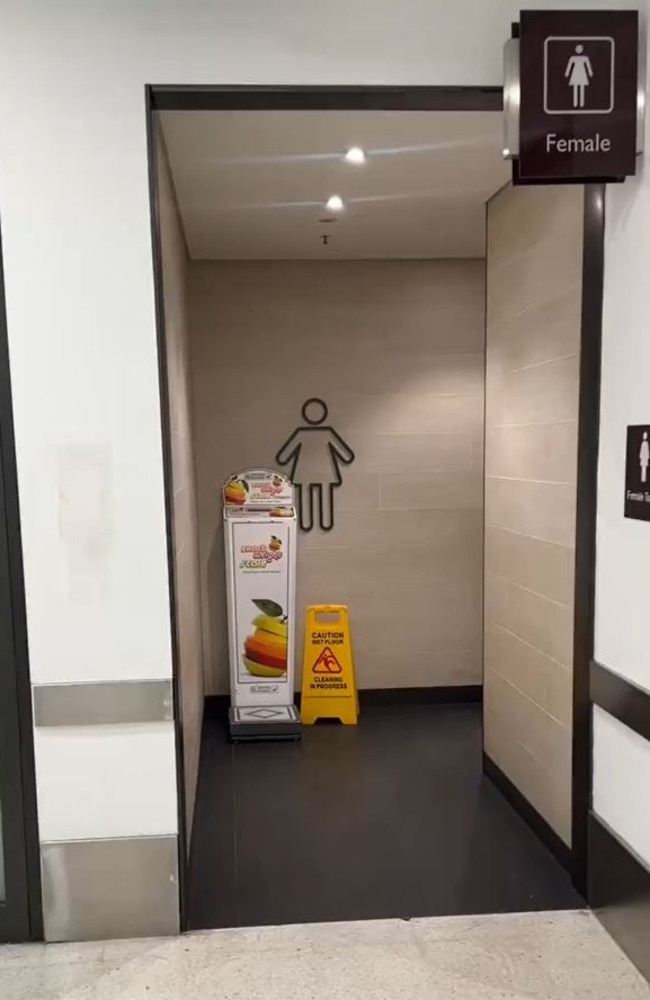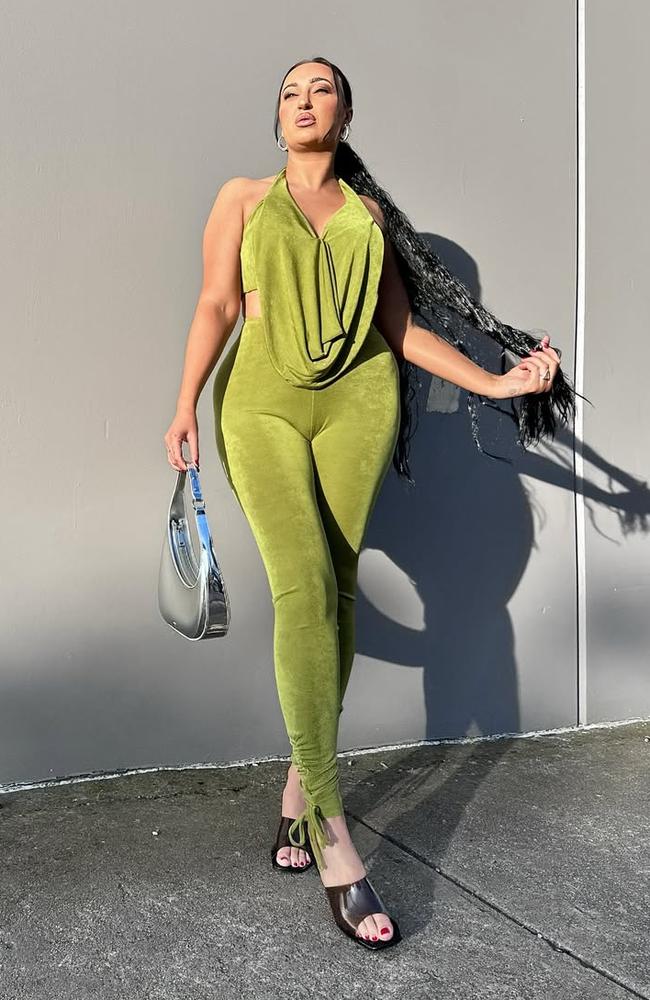Aussie slams ‘outdated’ feature in Westfield’s women’s bathroom
A woman has called out the shopping centre chain for a “harmful” tool that’s located in the women’s toilets and not the men’s.
A viral video shared online has highlighted how societal expectations continue to be imposed on women’s bodies, after a scale was spotted inside a Westfield shopping centre.
Positioned at the entrance of the women’s bathroom and not the men’s, the clip has sparked a necessary conversation about body image and the double standards that exist between men and women.
Melbourne woman, Shani Chantel, filmed the scales and took to TikTok to express her outrage, calling on Westfield to “abolish them immediately”.
Ms Chantel, a body positivity and self-acceptance influencer, felt particularly passionate about the topic, believing the public installation is not only outdated, but harmful.
“It’s damaging, particularly in today’s climate where societal beauty standards negatively impact women of all ages,” she told news.com.au.
Ms Chantel continued, “The presence of scales in women’s spaces serves as a constant reminder of the unrealistic standards placed on women’s bodies”.
From a young age, many women are conditioned to measure their self-worth against the numbers on a scale, which can profoundly affect their mental health, career choices and relationships.
In some Australian schools, the ad hoc, unregulated practice of weighing children has led to severe lifelong consequences, including eating disorders and people developing a distorted perception of food.
Ms Chantel says that scales have significantly impacted her, as she’s personally struggled with an eating disorder and has seen how such triggers can “send someone spiralling”.

What particularly troubles her is the absence of scales in the men’s bathrooms.
“These expectations are disproportionately placed on women, creating an environment where they are constantly reminded that their worth is tied to their appearance, while men are not subjected to the same pressure,” she notes.
“It sends a dangerous message to young girls and women, reinforcing the idea that beauty and weight are paramount to their value.”
News.com.au has reached out to Westfield for comment but hasn’t received a response.

It’s clear that she isn’t the only one disturbed by the sight.
“Is this for real?” one shocked commenter wrote on her video.
“I would legit move it to the men’s,” someone else claimed.
“They still have these?” a third wrote.
“That’s actually wild,” said another. “Makes me so angry”.
However, there were some comments, mostly from men, who seemed to see it as a non-issue.
“It’s not that deep,” one quipped.
“Why are so many people bothered by every little thing that doesn’t affect their life?” asked another.
“Bigger problems in the world. Everyone is so sensitive about everything. Move on,” said a different user.

It’s long been recognised that body weight isn’t a reliable marker of health because it doesn’t account for muscle mass, bone density, overall body composition, racial and sex differences, and other environmental factors.
According to a recent study on the topic, 38.5 per cent of women classified as being in a normal weight range were identified as “obese”.
At the same time, 10 per cent of the women classified as overweight were found to have a normal body fat percentage.
BMI is no better an indicator, according to the Royal Australian College of General Practitioners, and fitness level has been shown to have the greatest impact on longevity, not weight.

Despite these facts, it’s clear that many don’t grasp the profound harm that can stem from society’s fixation on weight alone.
“The fact that many men fail to comprehend the deep emotional and psychological toll this has on women, as evidenced by the horrific and dismissive comments I’ve received, only adds to the frustration,” says Ms Chantel.
“This is not a trivial issue, and it’s vital that we begin discussing why practices like this are harmful and why they need to change.”





